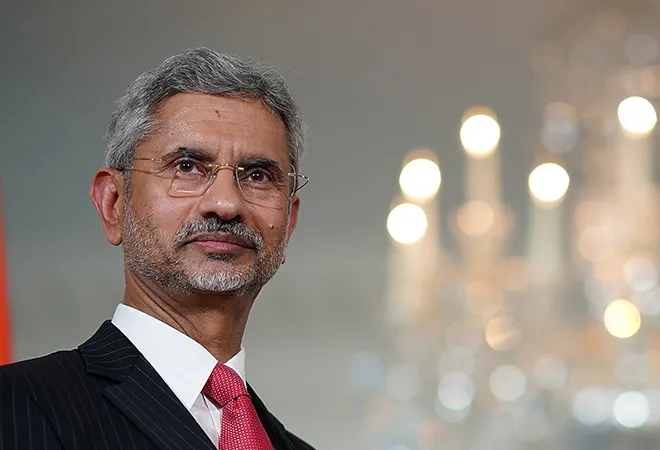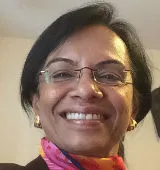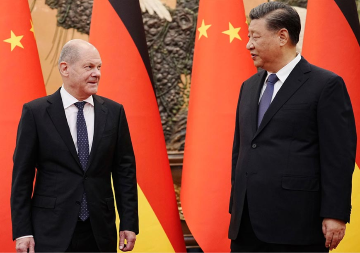
External Affairs Minister S. Jaishankar laid out India’s foreign policy for “Modi 2.0” with an energetic outreach to both governments and opinion makers during his recent trip to the United States.
He explained how India sees the world — a fluid array of multiple poles where convergence is possible but not congruence, where frenemies abound and where it’s natural to engage with the US, China and Russia all at the same time.
The west needs India for its market, human resources and burden sharing while India needs the west for its growth. The question is whether a “new compact” between India and the west is possible? It requires different conversations and different collaborations.
India’s foreign policy in Prime Minister Narendra Modi’s second term will reflect the huge mandate he received just as it will reflect the need to adjust constantly and move quickly in the rapidly shifting world environment.
However, more importantly, Jaishankar encouraged his audiences to see and understand the “new India,” one that has emerged after seven decades of democracy and socio‒economic changes, one that they are reluctant to recognise. This new India is a different being, one that lives in second tier cities, and speaks and feels differently.
Jaishankar’s message was received, but whether it will change the western liberal elite’s way of understanding India is an open question. That democracy — India’s most attractive and best‒loved attribute — brought forth the changes, is a hard pill to swallow for most analysts.
India’s foreign policy in Prime Minister Narendra Modi’s second term will reflect the huge mandate he received just as it will reflect the need to adjust constantly and move quickly in the rapidly shifting world environment.
India will demand a greater voice, it will play harder but also push back harder, it will engage more but also hedge enough to have a bargaining hand and it will be full of contradictions just as the world around is. It will be more nationalistic but also more internationalist.
For India, globalisation as a mantra is past its due date, a major rebalancing is underway, the emerging confrontation between the US and China will have an impact on all major countries, and old mechanisms are no longer sufficient to align national and global interests.
Solving a problem requires understanding it first. Jaishankar spelt out the way India understands the world in its current phase in multiple public appearances, covering all major think tanks in New York and Washington.
For India, globalisation as a mantra is past its due date, a major rebalancing is underway, the emerging confrontation between the US and China will have an impact on all major countries, and old mechanisms are no longer sufficient to align national and global interests. Existing rules are weakening and multilateralism is under serious threat.
Jaishankar said that it was “difficult to foresee a return to a bipolar world” because “the landscape has changed irreversibly.” The world is increasingly multipolar and as old alliances dilute, ad hoc groupings will emerge as countries find common cause on particular issues. In this space, India will demand “a greater voice,” on the strength of its growing economic clout.
As alliance structures weaken, local and regional balances will come more into play. “Getting used to operating in this intermediate zone is probably the first challenge of contemporary developments,” India’s foreign minister
told a large audience at the Centre for Strategic and International Studies (CSIS).
But India is well placed because it is unencumbered by alliances. It can approach the US without necessarily feeling the hurt the Europeans currently feel. India has less “anxiety” about change since its history with the US is relatively short unlike that of many other countries. The India‒US relationship is a work in progress and the current volatility in Washington is just one more adjustment New Delhi must account for.
India is well placed because it is unencumbered by alliances. It can approach the US without necessarily feeling the hurt the Europeans currently feel. India has less “anxiety” about change since its history with the US is relatively short unlike that of many other countries.
Whether a bipolar world is out of the question and whether the landscape has changed irreversibly will take a few more years to ascertain. Nevertheless, if the idea is to ensure the world is multipolar with India as a major pole, the Modi government will have to do a lot more both internally and externally.
Internal turmoil, both social and economic, cannot increase India’s advantage abroad. Questions will keep surfacing about the situation in Kashmir and about the treatment of minorities in general and a thick skin is only part of the answer.
But Modi’s first major foray into the world after winning the elections was impressive — the world wanted to engage with India at the United Nations and then some. Modi showed the scope of India’s reach and ambition on global issues, from climate change to poverty eradication to sanitation. Jaishankar did the same with his counterparts.
Internal turmoil, both social and economic, cannot increase India’s advantage abroad.
World leaders paid little attention to Pakistan’s scare tactics on Kashmir — bloodbath in the offing, threats of a nuclear war and more. Prime Minister Imran Khan got a reprimand from the State Department to keep it down, but that has never stopped the military‒intelligence establishment from doing what it knows best.
It is a given that Pakistan will keep at it especially because it has found a cleavage to focus the attention of the western media, academics and Democrats on Capitol Hill. Its newly appointed lobbyists are working overtime.
Jaishankar ruled out talks with Pakistan unless it ends promoting terrorism as state policy. You cannot take a tea break and play cricket when Pakistan’s dominant industry remains terrorism. But in the end, no neighbour can ever completely give up on another.
Bottomline: India is open for business with everyone but some rules apply.
The views expressed above belong to the author(s). ORF research and analyses now available on Telegram! Click here to access our curated content — blogs, longforms and interviews.



 External Affairs Minister S. Jaishankar laid out India’s foreign policy for “Modi 2.0” with an energetic outreach to both governments and opinion makers during his recent trip to the United States.
He explained how India sees the world — a fluid array of multiple poles where convergence is possible but not congruence, where frenemies abound and where it’s natural to engage with the US, China and Russia all at the same time.
The west needs India for its market, human resources and burden sharing while India needs the west for its growth. The question is whether a “new compact” between India and the west is possible? It requires different conversations and different collaborations.
External Affairs Minister S. Jaishankar laid out India’s foreign policy for “Modi 2.0” with an energetic outreach to both governments and opinion makers during his recent trip to the United States.
He explained how India sees the world — a fluid array of multiple poles where convergence is possible but not congruence, where frenemies abound and where it’s natural to engage with the US, China and Russia all at the same time.
The west needs India for its market, human resources and burden sharing while India needs the west for its growth. The question is whether a “new compact” between India and the west is possible? It requires different conversations and different collaborations.
 PREV
PREV


